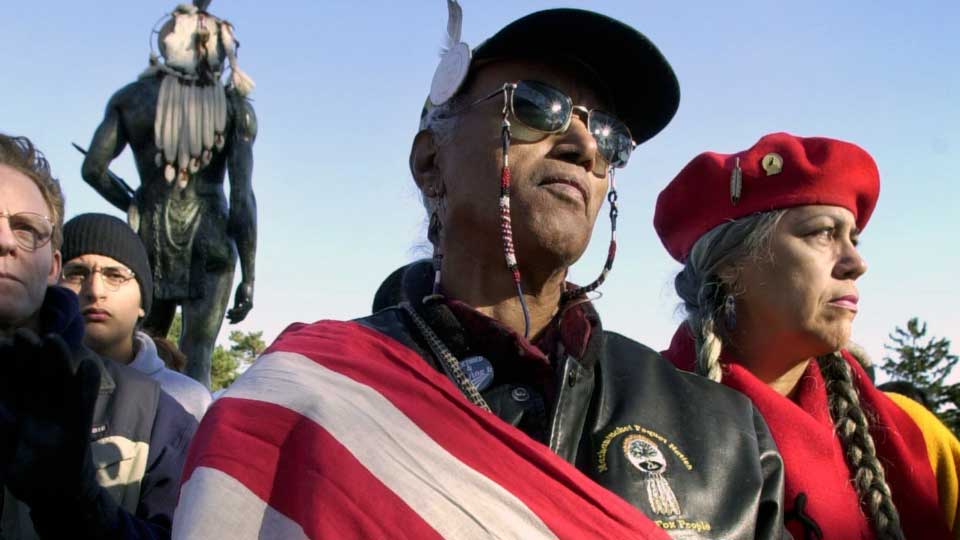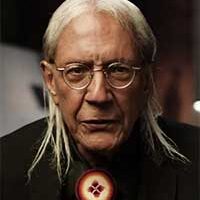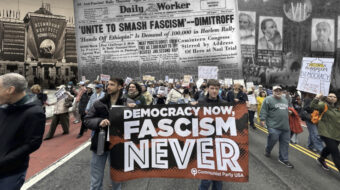
Once again, we approach another Thanksgiving holiday (or Un-Thanksgiving or Thanks-taking Day—take your pick depending on who you are). There is the mythology we’ve all been taught: happy generic Native Americans sitting with equally happy Pilgrims over a long table filled with the finest delicacies the land had to offer in a sumptuous feast “fit for a king,” to use an old Anglo-Saxon expression. The air is filled with good-natured banter, the sounds of the first Thanksgiving. That is the image depicted in much of mainstream society’s pop culture.
Then there is the real story: the anguished, ear-piercing screams of hundreds of Indigenous women and children as they are ruthlessly cut down by sword-wielding soldiers, shot down by merciless Pilgrims, burned alive in the fire of their own dwellings. The wanton slaughter continues until untold numbers are unspeakably slain. These are the real sounds of the first Thanksgiving.
The year is 1637, the year that saw the true story of the first Thanksgiving unfold.
The false narrative is a very comfortable one that has been perpetuated in mainstream history books, in schools, in advertising and marketing, and in the media for more than a hundred years.
The true narrative, however, has been surfacing more and more over the past few decades. I will begin by referencing the book, Where White Men Fear to Tread, by the famed Indigenous activist Russell Means, now deceased. It was published in 1995. I shall quote from the work in pertinent part as follows:
“Most Americans believe that Thanksgiving celebrates a bountiful feast, but that is not so. By 1970, the Wampanoag had turned up a copy of a Thanksgiving proclamation made by the governor of the colony. The text revealed the ugly truth: After the colonial militia had returned from murdering the men, women, and children of an Indian village, the governor proclaimed a holiday and feast to give thanks for the massacre. He also encouraged other colonies to do likewise—in other words, every autumn after the crops are in, go kill Indians and celebrate their murders with a feast.”
For clarification, the Wampanoag are the Indigenous people most often portrayed as having a feast with the Pilgrims. The Indigenous people that were massacred were the Pequot by soldiers of the Massachusetts Bay Colony, and the governor proclaiming a feast was Winthrop. This massacre set a precedent for European and Indigenous relations moving forward. Again, this was the first Thanksgiving.
For this writer, Thanksgiving is a rather aggravating time of the year because just about every time I make a purchase in a store the clerk behind the counter says “Happy Thanksgiving,” to which I reply succinctly that Indigenous people don’t celebrate the so-called holiday because, “The Pilgrims didn’t have dinner with the Indians, the Pilgrims killed the Indians” ( I am referring to Metacom’s War of 1675-1676, King Phillip’s War in Euro-American history). The repetition can get tiring.
National Day of Mourning
But moving forward, the United American Indians of New England (UAINE) have for the last 53 years, starting in 1970, held a National Day of Mourning (NDOM) at Cole’s Hill in Plymouth, Mass. The NDOM focuses on the centuries of genocide that gave birth to the most powerful imperialist country in world history that today threatens the very existence of the entire planet.
But the NDOM also celebrates the resiliency, heroism, and survival of Indigenous nations and peoples throughout the Hemisphere. It celebrates hundreds of years of Indigenous resistance to colonization and genocide.
Decolonization of the holiday
There are many avenues that can be taken in the direction of the decolonization of Thanksgiving. Indigenous people see this day as a vehicle as an educational opportunity to change the mythical narrative of Indigenous people and newcomer Pilgrims celebrating over an extravagant repast and living happily ever after. The truth is tragically and horrifically quite to the contrary.
Subsequently, years after the time of the Thanksgiving fable, the conflict known as Metacom’s War erupted between the Indigenous peoples of the region and the European colonists resulting in horrific casualties on both sides and the decimation of the Native population.
A correction in the history books is long overdue, and the decolonization of the so-called holiday is a jumping off point to begin to start. The mainstream public needs to become cognizant of the true beginnings of the United States, keeping in mind the goal of increasing support for the contemporary struggles of today’s Indigenous peoples.
Among the issues that need to be addressed are the crisis of Missing and Murdered Indigenous Women (MMIW), the continued decades-long incarceration of Indigenous political prisoner Leonard Peltier (Will Biden have the courage and integrity to free Peltier ? Obama sure didn’t), the developing Land Back Movement, the continued struggle against the Dakota Access Pipeline, and the battle for increased tribal sovereignty, along with a host of others.
As for further reflection on Thanksgiving, perhaps it could be called by another name: Happy Maize Day?
As with all opinion and news-analytical articles published by People’s World, this article reflects the opinions of its author.










